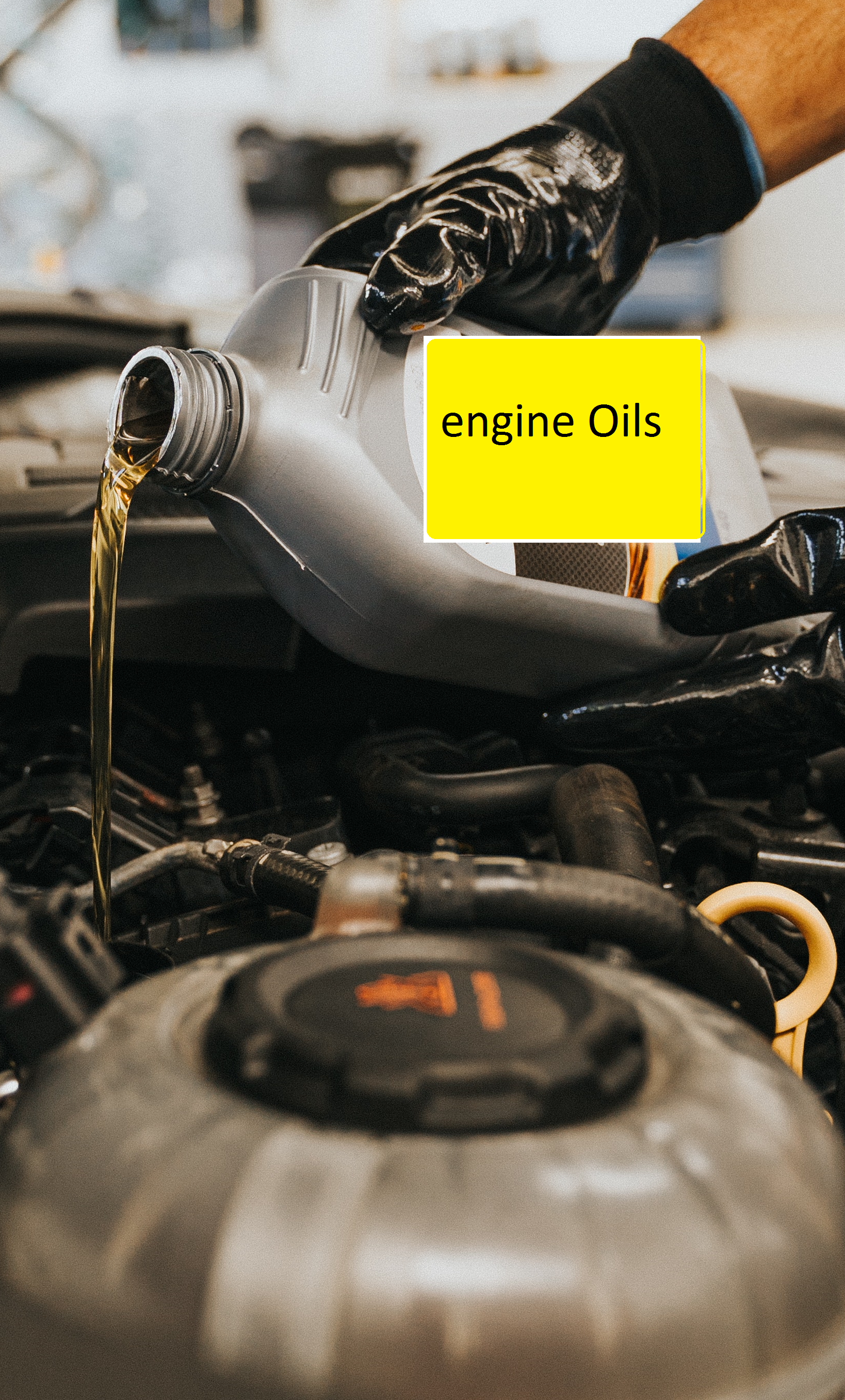Engine Oil – Everything You Need to Know
Introduction :
Engine oil is like the lifeblood of any vehicle. It’s more than just a slippery substance; it plays a key role in keeping your Motorbike’s engine running smoothly. From lubrication to cooling, cleaning, and even corrosion prevention, engine oil is critical in maintaining your vehicle’s performance and longevity.

Imagine your vehicle as a living, breathing entity. The heart is the engine, pumping life through its systems, but the lifeblood? That’s the engine oil. This golden fluid does more than just lubricate; it protects, cleans, and ensures that your vehicle runs smoothly, efficiently, and lasts as long as possible. Today, let’s explore the world of engine oil, uncovering its vital role in your vehicle’s health and how selecting the right oil can significantly enhance your motorbike’s performance and longevity.
What is Engine Oil?
Engine oil is a mixture of base oils and various additives. It may seem straightforward, but engine oil is actually a highly engineered product designed to endure high temperatures, minimize friction, and safeguard metal components.
• Composition and Types of Engine Oil
Engine oil generally consists of base oils (mineral, synthetic, or semi-synthetic) and additives like detergents, dispersants, and anti-wear agents.
• Function of Engine Oil in a Bike’s Engine
Engine oil lubricates moving parts, prevents wear, disperses heat, and helps keep the engine clean.
Types of Engine Oil
Choosing the right engine oil is essential for your engine’s health. Here’s a breakdown of the different types of engine oil:
• Mineral Oil:
Derived from refined crude oil, mineral oil is less processed and typically cheaper. However, it doesn’t perform as well under extreme temperatures.
• Synthetic Oil:
Synthetic oils are engineered to perform better in extreme conditions, like very hot or cold temperatures. They offer superior protection and efficiency but come at a higher cost.
• Semi-Synthetic Oil:
A blend of mineral and synthetic oils, semi-synthetic oil offers a good balance between performance and price. It’s ideal for drivers seeking better protection without the full cost of synthetic oil.
• High Mileage Oil:
The wise sage of engine oils, formulated for vehicles with over 75,000 miles. It rejuvenates aging engines, reducing leaks and emissions.
Why Engine Oil Matters for Your Vehicle
Engine oil isn’t just for lubrication; it has multiple roles that keep your vehicle running well:
• Lubrication:
By reducing friction, engine oil protects metal parts from wearing down too quickly.
• Cooling:
Engine oil carries heat away from critical areas, helping to prevent overheating.
• Cleaning:
Oil contains detergents and dispersants that trap dirt and particles, preventing sludge buildup.
• Corrosion Prevention:
Modern oils contain anti-corrosion additives to protect your engine from rust and other forms of degradation.
How to Choose the Right Engine Oil for Your Car or Motorbike.
Choosing the right engine oil involves understanding a few key factors:
• Viscosity Grades (e.g., 5W-30, 10W-40):
Viscosity is a measure of the oil’s resistance to flow. Oils are rated by numbers like “5W-30.” The “W” stands for winter, and the numbers indicate how well the oil flows in cold or hot conditions.
• Manufacturer’s Specifications and Recommendations:
Always consult your vehicle’s owner’s manual to see what oil type is recommended.
• Climate and Driving Conditions:
Consider your environment. If you drive in extreme temperatures or tough conditions, you might benefit from a more resilient oil, like synthetic.
Engine Oil Specifications and Standards
Engine oils come with certifications that indicate quality and performance. Here are the main ones to know:
• API (American Petroleum Institute) Ratings:
The API sets standards to ensure quality and performance. Look for designations like “SN” or “SP,” which indicate the oil is suitable for modern engines.
• ACEA (European Automobile Manufacturers’ Association) Ratings:
ACEA ratings are common in Europe and indicate an oil’s performance under European driving conditions.
• ILSAC (International Lubricant Standardization and Approval Committee) Standards:
These ratings, like GF-5 and GF-6, indicate fuel efficiency and protection against engine wear.
When to Change Engine Oil
Knowing when to change your engine oil can save you from costly repairs down the line. There are a few ways to determine the best time for an oil change:
• Mileage-Based Guidelines:
Some manufacturers recommend oil changes every 3,000 to 5,000 miles for traditional oil or every 7,500 to 10,000 miles for synthetic oil.
• Time-Based Guidelines:
If you don’t drive often, consider changing the oil every 6 months, even if you haven’t reached the mileage threshold.
• Signs Your Engine Oil Needs Changing:
Look out for symptoms like excessive engine noise, a burning smell, or a noticeable drop in fuel efficiency.
DIY Oil Change: How to Change Your Engine Oil at Home
Changing your own oil can save you money and give you insight into your vehicle’s condition.
• Tools and Materials You’ll Need:
You’ll need an oil filter wrench, a drain pan, a funnel, the right type of oil, and an oil filter.
• Step-by-Step Guide to Changing Oil:
1. Warm up the engine.
2. Place the drain pan and remove the drain plug.
3. Allow old oil to fully drain.
4. Replace the drain plug, remove the old filter, and install a new one.
5. Add the new oil, and check the level.
Common Myths About Engine Oil
Let’s bust some common myths about that oil:
• Myth 1: “Thicker Oil is Better”
Using oil that’s too thick can strain the engine, especially in colder weather. Stick with the viscosity recommended by your vehicle’s manufacturer.
• Myth 2: “You Can Just Top Up Instead of Changing”
Topping up without fully changing leaves old contaminants in the oil. A complete oil change is necessary to keep your engine clean.
• Myth 3: “Synthetic Oils Cause Leaks in Older Engines”
Synthetic oils do not inherently cause leaks. However, they may reveal existing leaks due to their smaller molecular structure.
________________________________________
Conclusion
Engine oil is essential to your vehicle’s health and longevity. By choosing the right type, following regular maintenance, and paying attention to manufacturer recommendations, you can keep your engine running smoothly for years to come.
Frequently Asked Questions
1. How often should I change my engine oil?
For most bikes or cars, every 5,000 to 7,500 miles is recommended. Check your owner’s manual for specifics. But, Monthly checks are ideal to ensure your engine oil is at the correct level and in good condition.
2. Can I switch between synthetic and mineral oil?
Yes, but it’s best to consult your owner’s manual and consider your driving needs. But, it is suggested that, always consider your vehicle’s requirements and manufacturer’s recommendations when making the switch.
3. Is synthetic oil worth the cost?
Synthetic oil often offers better protection and performance, making it worthwhile, especially in harsh conditions.
4. What does the ‘W’ mean in oil viscosity ratings?
The ‘W’ stands for “winter” and reflects the oil’s flow characteristics in cold weather.
5. What happens if I don’t change my engine oil regularly?
Without regular changes, oil becomes contaminated, leading to engine wear, sludge buildup, and reduced efficiency.
5. Does engine oil expire?
Unopened, engine oil can last up to five years. Once in use, adhere to your vehicle’s recommended oil change schedule.





